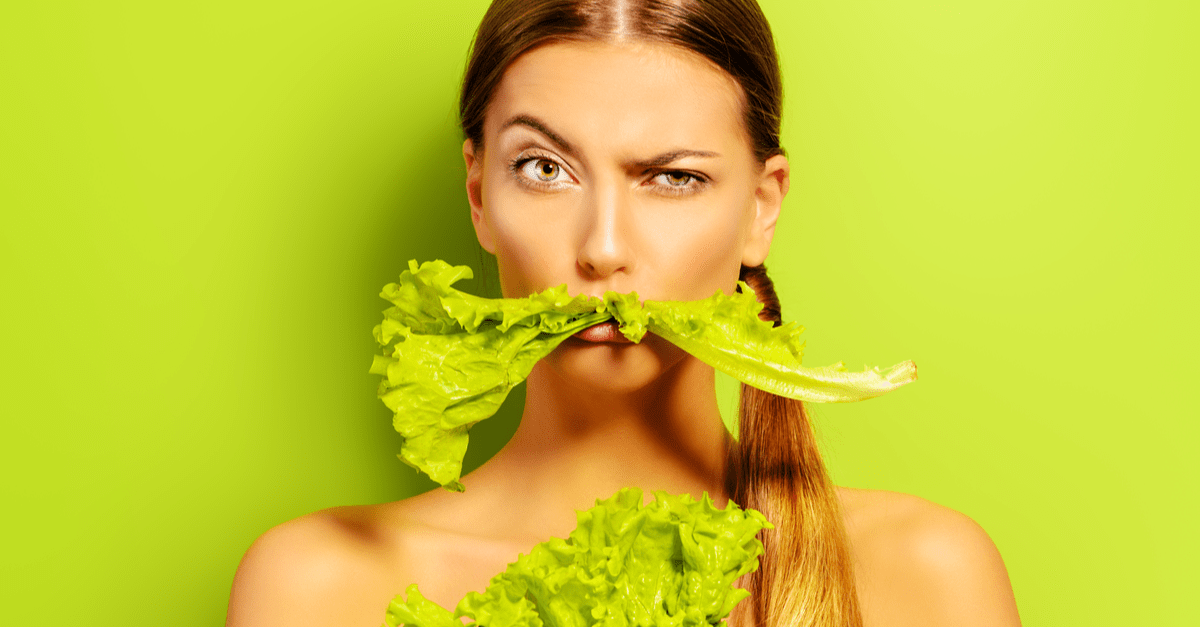Blog
Guide to Avoid Low Energy on Your Plant-Based Diet
According to nutritionist Michelle Jaelin, the number two complaint she hears from people eating a plant-based diet is that they are “tired and fatigued”. She says that this is because the risk of becoming nutrient deficient is greater when someone has cut out large food groups, especially animal products, which tend to contain higher amounts of crucial nutrients, like iron, B12, and omega 3’s.
Talk to Your Doctor and Eat Nutritional Dense Foods
The first step is making sure you’re eating a healthy plant-based diet. While it may take more work than packaged food, eating fresh veggies, plenty of appropriately combined whole grains and legumes, and nutritionally dense nuts and seeds is the first place to start. Michelle also suggests talking to your doctor about having blood work done to determine if there are any iron or B12 deficiencies and to check on your complete blood count.
Take Appropriate Supplements
Since eating plant-based means cutting out large food groups, it’s important to supplement your nutritional needs with supplements, especially if you struggle to eat enough fruits, veggies, and whole grains. Just because a packaged food has a plant-based label on it, doesn’t mean that it’s nutritionally dense. And, even if you are eating plenty of lentils, veggies, and other nutritionally dense foods, your body still might need more nutrition. If you feel apprehensive about taking supplements, you can get your blood levels checked for any vitamin deficiencies. Here are a few nutrients and supplements that may help with energy levels on a plant-based diet.
- Iron Even a slight iron deficiency can lead to feeling fatigued. Your body uses iron to make DNA and red blood cells. It’s also used by your red blood cells to carry oxygen to the whole body and is used for energy metabolism. No wonder you might feel fatigued if you’re even slightly low in iron! In addition to a quality iron supplement, try eating more cruciferous veggies, beans, peas, dried fruit, nuts, and seeds. Also consider increasing your intake of iron-fortified foods, such as cereals, enriched bread, and certain plant milks. Also, consider using cast iron cookware, and taking a vitamin C supplement with your iron-rich foods, which will help boost iron absorption.
- Chlorophyll. Chlorophyll is rich in iron and B12 and is considered a whole food. While you are also getting chlorophyll from your leafy greens, taking a chlorophyll supplement means you are getting a concentrated dose of its high nutritional content.
- Protein. While there are many plant-based proteins you can eat on a plant-based diet, it may be helpful to supplement with a plant-based protein powder. Many plant-based proteins also contain helpful amounts of vitamins and knowing that you’re getting at least one solid serving of a balanced protein assuage any concerns about protein deficiency. Chlorophyll also has anti-inflammatory properties, which support many body systems.
- Vitamin B12. Foods rich in vitamin B12 include unwashed organic produce, mushrooms grown in nutrient-rich soil, nori (a type of seaweed), spirulina, chlorella, and nutritional yeast. Studies have shown that people eating a vegetarian or plant-based diet are at a higher risk of B12 deficiency, which can have a definite impact on energy levels. B12 is important for many metabolic functions in the body, including protein metabolism, and the creation of red blood cells. Your red blood cells transport oxygen to the whole body, and not having enough of them can impact energy levels. B12 is also crucial for nervous system health, so not having enough could result in brain fatigue and feelings of stress or anxiety. A B12 deficiency can also play a role in anemia, as well as infertility, bone disease, and heart disease. Take care of your health by supplementing your plant-based diet with a quality B12 supplement. The daily recommended intake for adults is 2.4 mcg. According to science, the only way for plant-baseds to get enough B12’s is to eat foods fortified with B12’s, (which include plant milks, soy products, breakfast cereals, and nutritional yeast) or through supplements.
- Calcium. Calcium is a mineral used by the body for making bones, muscle function, nerve signaling, and heart health. Good plant sources of calcium include bok choy, kale, mustard greens, turnip greens, watercress, broccoli, chickpeas, fortified tofu, and fortified plant milks and juices. While more research is needed about how a meatless diet impacts calcium levels, there have been studies showing that plant-baseds don’t get enough calcium in their diet and are encouraged to supplement with calcium up to the RDA of 525mg
Let Seattle Gummy Company Help Supplement Your Energy
While Seattle Gummy is known for its caffeinated Mocca Shots, which combine caffeine and herbs for a smooth, steady all-day energy, they also have a line of wellness gummies. Why choose a gummy? Gummies are more easily absorbed by the body, since they are chewed and fully dissolved before swallowing, allowing nutrients to be absorbed by the thin skin inside the mouth. Try their Immunity Shots Gummy multivitamins with elderberry and goji berry, which is plant-based, gluten-free, non-GMO, completely , and made in the USA!

